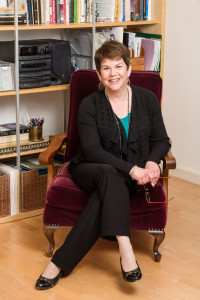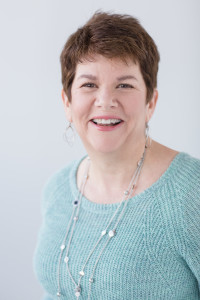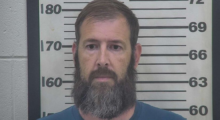
Credit: treeoflifehealthadvocates.com
In part two of this two-part interview, health advocate Ruth Linden, Ph.D. talks to SevenPonds about how patients can plan for the end of life. Dr. Linden works as the president of Tree of Life Health Advocates from her office in San Francisco. Her organization serves clients in the Bay Area, Monterey County and other areas of the country via phone or video chat. Learn more about her organization and how they can help you or a loved one by visiting its official website.
Marissa: Are terminally ill patients more likely to need help from a health advocate than those not going through terminal illnesses?
Ruth: I work with clients at the end of life and prefer this term to terminally ill patients. It’s difficult to generalize about the particular issues people face at the end of life. It depends on an individual’s situation — the strength of their support system (which hopefully would include hospice), the course of their illness and how they think about their mortality. I don’t believe people at the end of life are necessarily more likely to need help from a health advocate than others. Again, it depends on the individual’s situation. People at all stages of life can benefit from the help an independent health advocate provides.
One way in which an advocate can be helpful to a person at the end of life is to serve as a consultant to their agent for healthcare decision-making or healthcare proxy. Some of my clients have asked me to advise their agents, who were unfamiliar with end-of-life care. My clients and their agents find this arrangement reassuring.
Marissa: Speaking of clients, do you have any personal stories about people you have helped in the past?

Credit: treeoflifehealthadvocates.com
Ruth: I will always remember John, an artist who was only a few months older than I. He was a gay man who had moved to San Francisco a decade earlier after taking care of his mother during her final illness. John had liver cancer secondary to hepatitis C and had run out of treatment options. He needed a health advocate, but he also needed a host of social services. Living in a single-room occupancy hotel on Supplemental Security Income, John couldn’t afford to hire a health advocate so I worked with him pro bono. My business manager had advised me not to take on pro bono clients early in my practice, but John was such a lovely person and his situation was so compelling that I just couldn’t say no to him.
Because John was HIV-negative, he didn’t qualify for any of the services available to gay men with HIV. He fell between the cracks. But I found an organization willing to provide him with a buddy. Then I arranged for a second opinion from a panel of oncology experts and accompanied him to medical appointments. Late one Sunday night, John called me from the ER. I rushed to his side. I rode with him in the ambulance when he was transferred to the county hospital and monitored his care in the ICU to ensure that his treatment conformed to his wishes. I was with him every evening for close to a week. Sadly, John died the morning he was to be transferred to hospice, taking us all by surprise. I helped his out-of-state family obtain his belongings from the hospital and his art from his hotel.
Marissa: Wow. That is incredible. In those situations, I can see how an advance care directive would come in handy. Is this something everyone should have?
Ruth: Advance directives are near and dear to my heart. I strongly believe that everyone should have one, regardless of their age and health status, even millennials. Choosing the kind of healthcare we receive and do not receive at the end of life is a profound act of self-determination. It is a right that I encourage all of my clients to exercise. Along with an advance directive, it is a good idea to complete a pre-hospital Do Not Resuscitate, or DNR, form and post it in a visible spot in your home if you would not want to receive CPR from emergency services providers responding to a 911 call. You may also wish to request that your physician complete a Physician’s Orders for Life Sustaining Treatment, or POLST, form that provides caregivers with detailed information about the care you wish or do not wish to receive if you are gravely ill and cannot speak for yourself.
Marissa: Switching gears for a moment, what should a patient do if he wants to get a second opinion? I know that this can be an uncomfortable experience.
Ruth: I’m so glad you brought up second opinions, which are vital to ensuring optimal health outcomes. Most doctors support their patients when seeking second opinions because second opinions advance the practice of medicine. If you want to learn more, I recommend reading my blog post on the subject.
Tips for Protecting Yourself During Major Healthcare Decisions
- Take your time; only true emergencies require quick decisions.
- Ignore well-meaning friends; you should only take advice from professionals, like your doctor or your health advocate.
- Embrace change; it’s OK to change your mind about what you want.
- Contact a health advocate for a complimentary consultation to explore all of your options.
Marissa: How do you find a health advocate nearby?
Ruth: You are welcome to contact me if you live in Northern or Central California. But please feel free to call or email me even if you live elsewhere; I may be able to recommend one of my qualified colleagues in your area. You can also search at www.advoconnection.com, an excellent resource for health advocates in the United States and Canada. Lastly, try Googling “health advocate” or “patient advocate” in your city to see if any names come up.
An independent health advocate can often save you money in both the short term and long term. If you decide to retain an advocate, she will be mindful of your budget and will work with you to find cost-effective solutions to your healthcare challenges.
Marissa: Thank you for taking the time to speak with us today!
Ruth: Thank you!
Catch part one of our interview with Ruth Linden, Ph.D. here!

 How Can A Health Advocate Help You Plan End-of-Life Care? An Interview with Ruth Linden, Ph.D., Part Two
How Can A Health Advocate Help You Plan End-of-Life Care? An Interview with Ruth Linden, Ph.D., Part Two


 Funeral Home Owner Chris Johnson Spending Halloween in Jail
Funeral Home Owner Chris Johnson Spending Halloween in Jail
 Our Monthly Tip: Toast a Loved One with a Personalized Glass
Our Monthly Tip: Toast a Loved One with a Personalized Glass
 My Cousin’s Death Taught Me the Meaning of Life
My Cousin’s Death Taught Me the Meaning of Life














